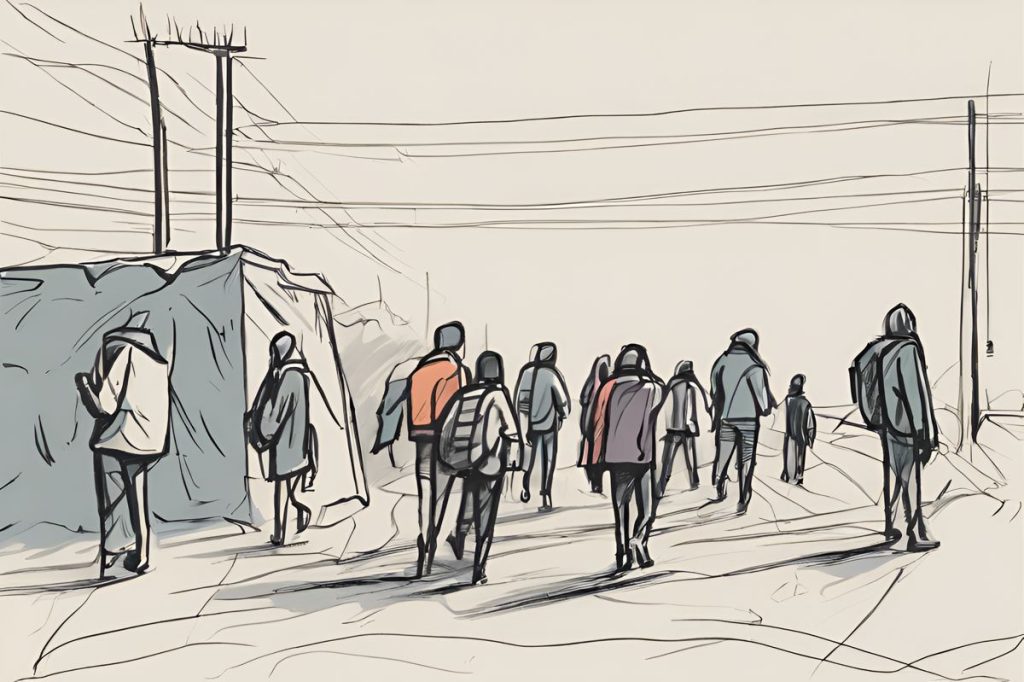Interior Minister Constantinos Ioannou criticizes UNFICYP for pre-arranging accommodations for migrants in the buffer zone, questioning the transparency and sequence of events. Tensions rise as conflicting reports emerge regarding the treatment of migrants from Afghanistan, Syria, and Cameroon, highlighting the need for a humane resolution amidst the complex geopolitical landscape.
What is the main critique of the Interior Minister of Cyprus towards UNFICYP regarding migrants in the buffer zone?
The Interior Minister of Cyprus, Constantinos Ioannou, criticizes UNFICYP for potentially pre-arranging accommodations for migrants in the buffer zone, implying a lack of transparency and questioning the sequence of events leading to their current plight.
Unprecedented Tension Over Migrant Treatment
Tensions have soared recently as the Interior Minister, Constantinos Ioannou, voiced severe criticism against the United Nations peacekeeping force (UNFICYP). The critique focused on the ongoing situation involving migrants located within the island’s buffer zone. These migrants, originating from nations including Afghanistan, Syria, and Cameroon, have been held in limbo following their attempt to enter the Republic’s territory through the north. Their journey came to a halt when local authorities barred them access to asylum procedures.
Ioannou’s statements, delivered on a local radio station, implied a suspicion of forethought by UNFICYP, suggesting that the tents housing the migrants had been erected even before their arrival. This insinuation raises questions about the peacekeeping force’s role and the true sequence of events leading up to the current impasse.
Conflicting Accounts and Humanitarian Concerns
While the Interior Minister has cast doubt on UNFICYP’s actions, the organization has maintained that their intervention was purely humanitarian, providing shelter, food, and medical care to the stranded individuals. Furthermore, the UNHCR and UNFICYP’s accounts differ from the government’s narrative, claiming that the migrants were immediately reported to the authorities of the Republic upon detection and subsequently forbidden entry.
Amidst these conflicting reports, the dire situation of the migrants remains a pressing concern. The buffer zone, a place not designed for long-term habitation, poses severe challenges, especially as Cyprus experiences extreme weather conditions. Despite the debate, the need for a humane resolution is undeniable, a sentiment echoed by UNFICYP’s reiteration of the harsh conditions faced by the migrants.
A Stance of Defiance
Interior Minister Ioannou also indicated that the number of migrants in the buffer zone is uncertain, a point of contention between Cypriot officials and UN representatives. This uncertain headcount further complicates an already delicate situation.
In concert with Ioannou’s remarks, President Nikos Christodoulides has taken a firm stance on the issue. His administration has been clear that public statements from external parties will not sway the country’s policies. The President emphasizes the need for cooperation, not public pressure, in dealing with such complex issues.
This firm stance taken by Cypriot leadership aligns with the broader European conversation on migration. Annita Hipper, a European Commission spokeswoman, referenced EU law which mandates that any person may apply for international protection within a member state’s borders or transit zones. This legal perspective raises questions about the Republic’s use of the Green Line regulation as a basis for refusing entry to the migrants, a decision which has attracted scrutiny and concern from various international bodies.
The Search for a Solution
The unfolding drama in the buffer zone of Cyprus is emblematic of the broader challenges faced by the international community regarding migration and asylum. As debates continue around responsibility and international law, the humanitarian aspect remains at the forefront, calling for urgent attention and a compassionate response.
The situation has highlighted the complexities of geopolitics, migration, and international cooperation. It serves as a stark reminder of the delicate balance between national sovereignty and global humanitarian obligations. While the government and the UN grapple with policy and procedure, the lives of dozens hang in the balance, awaiting a resolution that adheres to both the letter and the spirit of international law.
What is the main critique of the Interior Minister of Cyprus towards UNFICYP regarding migrants in the buffer zone?
The Interior Minister of Cyprus, Constantinos Ioannou, criticizes UNFICYP for potentially pre-arranging accommodations for migrants in the buffer zone, implying a lack of transparency and questioning the sequence of events leading to their current plight.
What are the conflicting reports regarding the treatment of migrants from Afghanistan, Syria, and Cameroon in the buffer zone?
There have been conflicting reports regarding the treatment of migrants in the buffer zone. While the Interior Minister has criticized UNFICYP, claiming they may have pre-arranged accommodations, the UNHCR and UNFICYP maintain they are providing humanitarian aid to the stranded migrants. The government and UN representatives have differing accounts of the migrants’ situation.
What is the stance of Cypriot leadership, particularly President Nikos Christodoulides, on the issue of migrants in the buffer zone?
Cypriot leadership, led by President Nikos Christodoulides, has taken a firm stance on the issue of migrants in the buffer zone. They have indicated that public statements from external parties will not influence the country’s policies and emphasize the need for cooperation in addressing the complex issues surrounding migration.
What broader implications does the situation in the buffer zone of Cyprus have for international discussions on migration and asylum?
The situation in the buffer zone of Cyprus underscores the broader challenges faced by the international community in dealing with migration and asylum. It highlights the delicate balance between national sovereignty and global humanitarian obligations, sparking debates around responsibility, international law, and the urgent need for a compassionate response to the plight of migrants.

